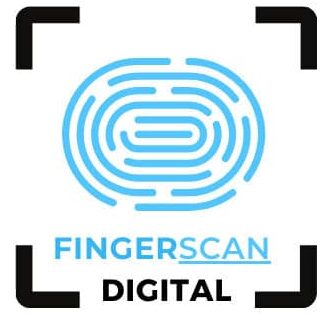
Understanding what shows up on your background check before an employer, landlord, or licensing board runs one could be the difference between getting approved or facing an embarrassing rejection. After processing thousands of background checks in San Jose, Las Vegas, and throughout California and Nevada, we’re revealing exactly what information appears – and what you can do to prepare.
You’ve probably heard horror stories: someone getting rejected from their dream job because of a decades-old mistake, or a perfect tenant application denied over a case of mistaken identity. But what’s the real story behind background checks? After processing thousands of fingerprints and background checks in San Jose and Las Vegas, we’ve seen it all – and we’re about to reveal what most people don’t know.
The Background Check Myths That Could Cost You
Myth #1: “Minor Mistakes Don’t Show Up”
Reality Check:
That shoplifting charge from college? It’s probably still there. Even minor infractions can appear on background checks for years, sometimes decades. We’ve seen clients shocked to discover their “sealed” juvenile records still showing up.
Pro Tip: In California, many minor offenses can be expunged. Don’t assume they’ve disappeared on their own.
Myth #2: “Only Criminal Records Matter”
The Surprising Truth: Background checks can include:
- Credit history (for financial positions)
- Employment verification (they actually call your old bosses)
- Education verification (yes, they check if you really graduated)
- Social media screening (more common than you think)
- Civil court records (lawsuits, divorces, bankruptcies)
Real Story: A San Jose tech worker lost a job offer because their LinkedIn profile claimed a degree they never completed. The background check caught the discrepancy.
Myth #3: “Name Changes Hide Your Past”
The Reality: Modern background checks use multiple identifiers:
- Social Security numbers
- Previous addresses
- Known aliases and maiden names
- Fingerprint databases (which never lie)
Getting married and changing your name won’t erase your history – but it might create confusion that delays your application.
What Employers Really Look For (It’s Not What You Think)

The “Character Pattern” Analysis
Smart employers aren’t just looking for criminal records. They’re analyzing patterns:
- Financial responsibility (especially for positions handling money)
- Honesty (do your claims match reality?)
- Stability (frequent job changes or address moves)
- Judgment (types of incidents, not just their existence)
Industries With the Strictest Standards
Some fields have zero tolerance policies:
Healthcare: Any drug-related offense, even decades old, can disqualify you from nursing or medical positions.
Education: Working with children requires extensive background screening, including fingerprint checks that go back to juvenile records.
Financial Services: Banks and investment firms check credit history, civil judgments, and look for any history of fraud or financial crimes.
Security Clearances: Government positions require polygraph tests, interviews with neighbors, and international background checks.
The $78 Billion Background Check Industry’s Dirty Secrets

Secret #1: Error Rates Are Higher Than You Think
- 30% of background checks contain errors according to employment law studies
- Common mistakes: Wrong person’s records, outdated information, incorrect charges
- Most shocking: 1 in 20 people have someone else’s criminal record mixed with theirs
Secret #2: The “Instant” Background Check Trap
Those $29.99 online background check services? They’re often unreliable and incomplete. Real employment background checks:
- Cost $50-200+ per person
- Take 2-7 business days for thorough results
- Include fingerprint verification through FBI databases
- Cross-reference multiple state and federal databases
Secret #3: Your Digital Footprint Is Permanent
Delete that embarrassing Facebook post from 2015? Think again:
- Digital archiving services save old social media content
- Court records are increasingly digitized and searchable
- News articles mentioning your name never disappear
- Professional licensing boards keep permanent records
Real Stories That Will Shock You
Case Study 1: The Mistaken Identity Nightmare
“Maria from Las Vegas” applied to adopt a child. Her background check showed a drug conviction – except she’d never been arrested. Turned out another Maria with the same birthday had used her Social Security number years earlier. It took 8 months and a lawyer to clear her name.
The Lesson: Always review your own background check before important applications.
Case Study 2: The Social Media Scandal
“Tech Manager from San Jose” was up for a promotion requiring security clearance. An investigator found his Twitter account where he’d posted complaints about his current employer and made inappropriate jokes. No criminal record, but no clearance either.
The Lesson: Everything you post can be found and used against you.
Case Study 3: The Credit Score Surprise
“Retail Manager from Sunnyvale” was denied a promotion to handle cash deposits because of her credit score – even though she’d never missed a payment. Medical debt from a cancer battle years earlier had tanked her credit, disqualifying her from financial responsibility roles.
The Lesson: Different jobs care about different aspects of your background.
How to Protect Yourself: The Insider’s Guide
Step 1: Run Your Own Background Check First
Before any important application, get your own comprehensive background check:
- FBI background check through fingerprinting (most thorough)
- Multi-state criminal record search
- Credit report from all three bureaus
- Professional license verification
- Social media audit (search your own name)
Step 2: Fix Problems Before They Hurt You
Expungement services can clear eligible criminal records Credit repair can improve financial background issues Professional references should be contacted and prepared Documentation should be gathered for any explainable issues
Step 3: Know Your Rights
Fair Credit Reporting Act (FCRA) gives you rights:
- Right to know if background check information was used against you
- Right to dispute incorrect information
- Right to add explanatory statements to your record
- Right to see what information was reported
The Future of Background Checks: What’s Coming

Artificial Intelligence Screening
AI is now analyzing:
- Social media behavior patterns
- Online purchasing history
- Digital communication styles
- Professional network connections
Continuous Monitoring
Instead of one-time checks, many employers now use:
- Ongoing criminal record monitoring
- Social media surveillance
- Credit score tracking
- Professional license status updates
Biometric Integration
Advanced screening now includes:
- Fingerprint database cross-referencing
- Facial recognition technology
- Voice pattern analysis
- DNA database integration (for certain security roles)
Why Location Matters: San Jose vs. Las Vegas vs. National
Different states have different laws:
California (San Jose) Advantages:
- “Ban the Box” laws limit when employers can ask about criminal history
- Strong expungement options for old convictions
- Privacy protections for certain types of records
- Salary history bans prevent financial discrimination
Nevada (Las Vegas) Considerations:
- Gaming industry requirements have unique background standards
- Faster processing for many background check types
- Tourism industry familiarity with diverse backgrounds
- Interstate cooperation for multi-state background verification
The Bottom Line: Take Control Before It’s Too Late

Your background check tells a story about you – make sure it’s the right story. Whether you’re applying for a job in Silicon Valley, adopting a child, getting professional licensing, or applying for security clearance, being proactive about your background can make the difference between approval and rejection.
Don’t wait until you’re facing a deadline. The best time to address background check issues is before you need a clean record, not when you’re sitting in an interview wondering why you got rejected.
Frequently Asked Questions That Could Save Your Application
How far back do background checks really go?
Most employment checks: 7-10 years for criminal records, though some states allow longer Security clearances: No time limit – they can go back to childhood Healthcare positions: Often check entire criminal history Financial positions: 10+ years for credit and financial records
Can I find out what’s on my background check before applying?
Absolutely – and you should. Getting your own FBI background check through fingerprinting is the gold standard. It costs around $100 and shows exactly what law enforcement databases contain about you.
What if my background check has errors?
You have rights. The Fair Credit Reporting Act requires background check companies to investigate disputes and correct errors. Keep documentation of the correction process.
Do misdemeanor charges really matter?
It depends on the job and location. Some California employers can’t ask about certain misdemeanors, while federal security clearance positions care about everything, including traffic tickets.
How long does it take to clean up background check problems?
Plan for 3-6 months minimum. Expungements, credit repair, and error corrections all take time. Start early.
Can I refuse a background check?
Technically yes, but practically no. Refusing usually means automatic disqualification from jobs, housing, loans, or licenses.
Do volunteer positions require background checks?
Often yes, especially if working with children, elderly, or vulnerable populations. Many volunteer organizations require the same level of screening as paid positions.
What’s the difference between a background check and a security clearance investigation?
Massive difference. Security clearances involve interviews with friends, family, neighbors, and coworkers going back years. They check foreign contacts, financial records, and even polygraph tests.
Need a comprehensive background check or fingerprinting services in San Jose or Las Vegas? FingerScan Digital provides FBI background checks, Live Scan fingerprinting, and professional consultation to help you understand and prepare for background screening processes. We also partner with TrustPoint Disability & Legal Services LLC for clients needing legal document preparation or assistance with background check issues.
Contact us today for same-day fingerprinting, mobile services, and expert guidance on background check preparation.
